Blog

“We’ve been doing lessons for a while… but how do I know if it’s actually working?” This is one of the most common and completely valid questions parents ask themselves, especially if they’re not musical. Progress in piano doesn’t always look or sound obvious in the early stages. Unlike some activities, results aren’t instant and that can feel worrying when you’re investing time, money, and emotional energy into your child’s learning. The reassuring news? Most healthy musical progress happens quietly before it becomes obvious. Here’s what to realistically expect over time and when not to worry. What Progress Often Looks Like around 3-6 Months(if they began as a beginner) At this stage, progress is mostly about settling in. You might notice: Your child feels more comfortable sitting at the piano They recognise lesson routines They’re starting to listen more carefully, even if notes aren’t perfect What’s normal here: Hesitation Needing reminders and support This isn’t slow progress, it's foundation-building. What Progress Often Looks Like at 7-12 Months This is when progress becomes clearer to most parents. You may notice: Greater independence Less hesitation when playing Improved posture and focus Pride in what they can play Not every child is ready for grades at this stage and that’s perfectly fine.Your child is learning how to learn and that skill takes time. Strong foundations now often lead to faster, more confident progress later. If you have any questions please feel free to reach out!

“They’ve had a long day… should we still push through practice?” Many parents feel torn between supporting consistency and respecting their child’s energy levels especially during busy school weeks. The truth is: Tiredness doesn’t mean lack of commitment. It often means your child’s brain needs a different approach. Here’s how to handle it without guilt or pressure. It’s reasonable to adjust expectations when: Your child is overwhelmed with school or clubs They’re emotionally exhausted Concentration is unusually low Short, calm practice is far more valuable than long, frustrated sessions. Sometimes: 5 focused minutes beats 20 stressed ones Listening to a piece counts as engagement Talking about the lesson reinforces learning How Teachers Adapt During Busy Periods Good teachers expect fluctuations in energy. During tiring phases, lessons may focus more on: Confidence and comfort Reinforcing known material Gentle technical reminders Enjoyment and connection to music This doesn’t slow progress, it protects it. How Parents Can Communicate This Proactively One of the most helpful things you can say is: “It’s been a heavy week. Please let us know what’s realistic to focus on.” This allows the teacher to: Adjust expectations Support your child emotionally Keep progress aligned without pressure You’re not letting anyone down you’re advocating. What Matters Most Long-Term Children who feel supported (not pushed) are more likely to: Stick with lessons Build confidence Develop a healthy relationship with learning Music is a long journey - not a sprint. A Gentle Reminder for Parents Rest, flexibility, and understanding are not signs you are supporting them. If you’re unsure how to balance tiredness with consistency, we’re always happy to help you find a rhythm that works for your family. If you have any questions please feel free to reach out!
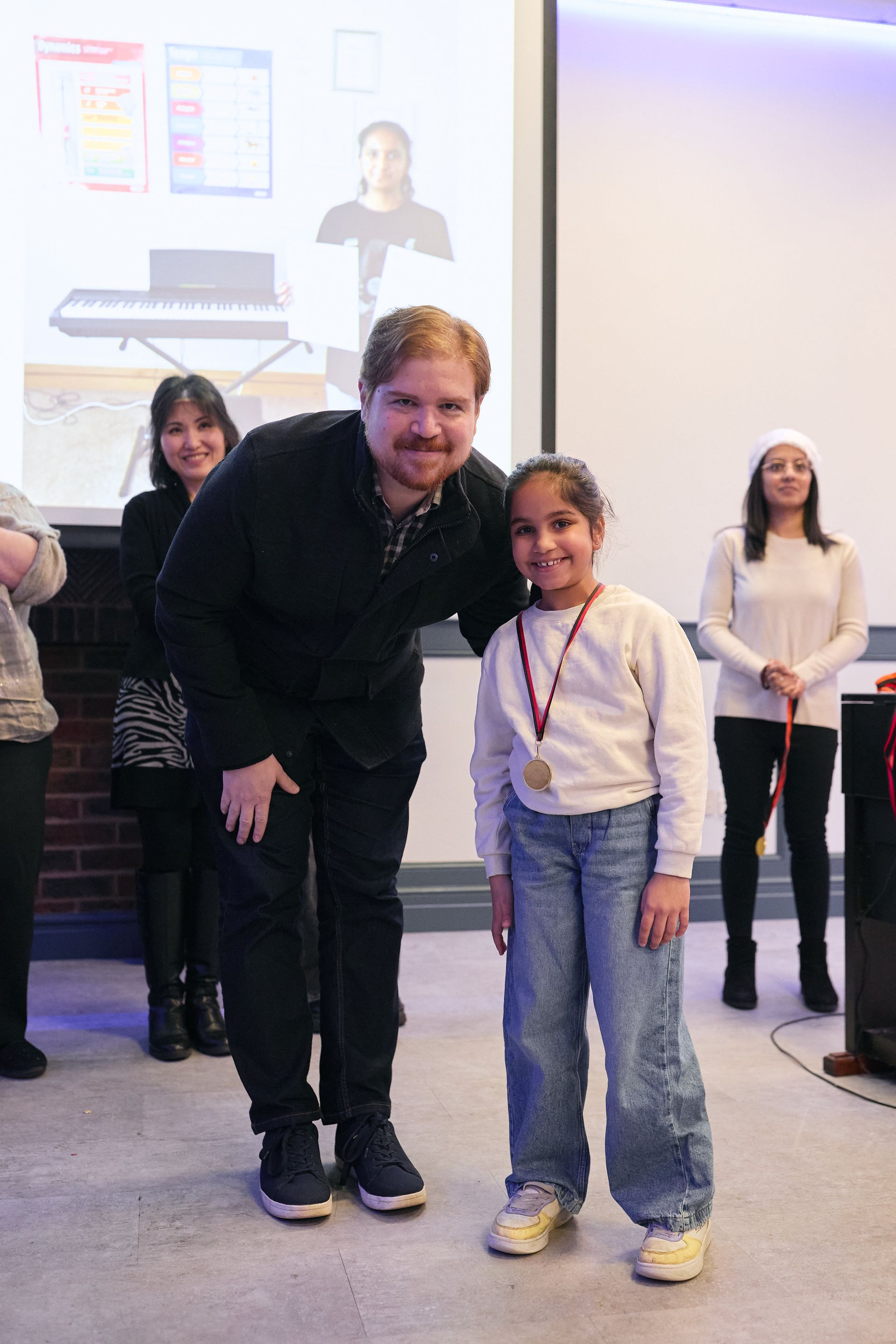
Many parents tell us the same thing: “I want to support my child’s piano learning but I’m not musical, so I don’t know what to look for.” The truth is, you don’t need to read music or play the piano to be a huge part of your child’s progress. What matters most is how you observe, encourage and communicate, not your musical knowledge. Here are three simple, practical ways to stay involved and confident. 1️. Sit In on Lessons (Even Occasionally) You don’t need to attend every lesson -just sitting in from time to time can make a big difference. When you observe a lesson, you begin to notice: How your child is guided to sit and place their hands How the teacher breaks tasks into small, achievable steps The language and cues your child responds to Sit in for 10-15 minutes once every few weeks. This is to absorb rather than to assess. This helps you support practice at home using the same language the teacher uses. 2. Record a “Before vs After” Video One of the clearest ways to see progress - especially for non-musical parents - is through short videos. How it works: Record your child playing a song or exercise Then record the same song or exercise 5–6 lessons later, or on the day the teacher says it’s “finished” You’re not looking for perfection. Instead, notice small but meaningful changes: Confidence: Do they sit more comfortably and start playing more willingly? Hand position: Do they find their starting position more quickly? Flow: Are there fewer pauses or gaps in the music? Even tiny improvements are signs of progress - especially at this stage of learning Keep the video private. This isn’t for comparison with others - it’s simply a reminder of how far your child has come. 3. Set Simple Checkpoint Goals With the Teacher Progress doesn’t always mean “moving up a level”. For younger learners, it often shows up in skills and habits. Setting small checkpoint goals helps you know what to look out for at home. Examples of helpful checkpoint goals: “Starting the piece without help” “Finding hand position independently” “Playing through without stopping” “Feeling confident playing for someone else” Ask the teacher: “What’s one thing we should notice improving over the next few lessons?” This gives you clarity and keeps expectations realistic. A Reassuring Note for Parents At ages 6–8, piano progress is often gradual and subtle and that’s exactly how it should be. Confidence, comfort at the keyboard, and smoother transitions are just as important as notes and rhythms. By observing, recording small milestones, and staying aligned with the teacher, you’re already playing a vital role in your child’s musical journey even if you’ve never played a note yourself. If you have any questions please feel free to reach out!
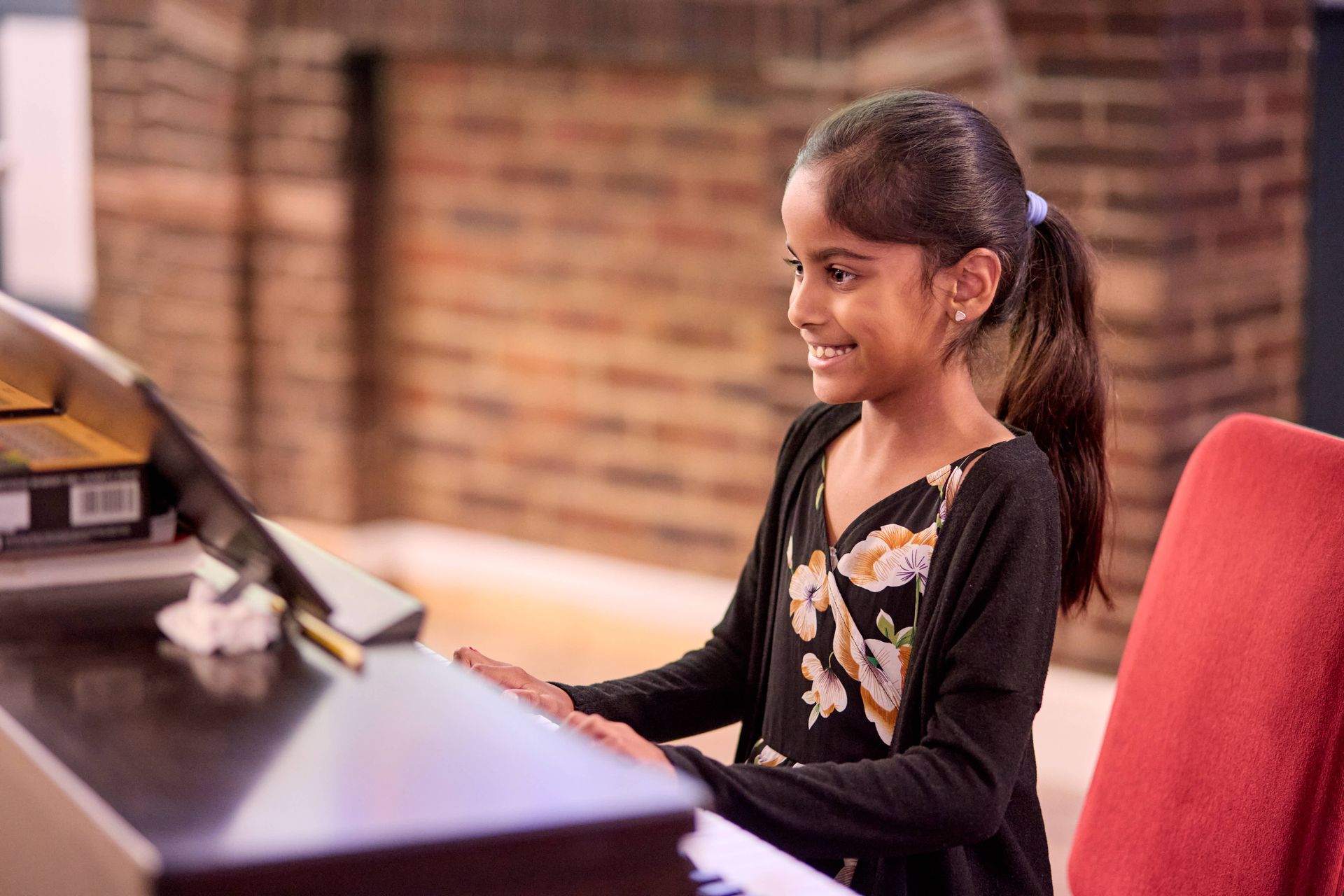
When your child is learning the piano, mistakes can feel frustrating - for both of you. But here’s the reassuring truth: mistakes are a natural and valuable part of learning. They show that your child is listening more carefully, paying attention, and trying to improve. Instead of viewing these little slip-ups as something to avoid, we can help children learn how to use them to become stronger musicians. Here are some gentle, encouraging ways to support your child when mistakes happen at the piano. 1. Remind Them That Mistakes Mean They’re Making Progress When a child starts to notice their own mistakes, it’s actually a sign of growth. They’re developing awareness and sensitivity - essential skills for becoming a confident pianist. Try reassuring them: “You noticed that - that means you're improving.” “Mistakes help us learn what to fix.” This shifts their mindset from frustration to curiosity. 2. Encourage Kindness Toward Themselves Children can be surprisingly tough on themselves. A tricky passage or repeated error can make them feel discouraged. A simple reminder goes a long way: “It’s okay. Learning takes time.” “Let’s take a breath and try again slowly.” When children feel safe to make mistakes, their confidence blossoms. 3. Show Them How to Turn Mistakes Into Something Creative A delightful part of learning the piano is discovering that mistakes don’t have to stop the music. If your child hits a wrong note, they can: Turn it into a little musical idea Repeat it as part of a rhythm Add a fun pattern or variation Teaching them to improvise through slip-ups helps them stay relaxed and playful - a skill that even advanced musicians rely on. 4. Focus on the Small Area That Needs Attention Instead of replaying the whole piece from the beginning, help your child zoom in on the exact spot where they keep slipping. A simple practice routine: Slow it right down Repeat the small section a 5 times in a row correctly Speed up only when the above has been completed This targeted practice builds confidence far faster than starting over each time. 5. Create a Little “Challenge List” Together Most kids love lists! Make a small note of the bars or patterns they find difficult. It turns frustration into a fun challenge to solve. Examples: “Left hand jump - bar 12” “Right-hand fingering in line 3” Look at the list for 2–3 minutes at the start of practice, then celebrate when they cross an item off. 6. Celebrate Every Win - Especially the Small Ones Did they fix one bar? Play a tricky rhythm correctly once? Make fewer mistakes than yesterday? Cheer for these! Progress is made in tiny steps, and when those steps are noticed, children naturally stay more motivated and positive. Finally, mistakes aren’t something to fear, they're stepping stones. When your child feels supported, encouraged, and free to experiment, they grow into resilient, confident learners. Your gentle reassurance helps them build not just piano skills, but lifelong problem-solving skills too. If you have any questions please feel free to reach out!
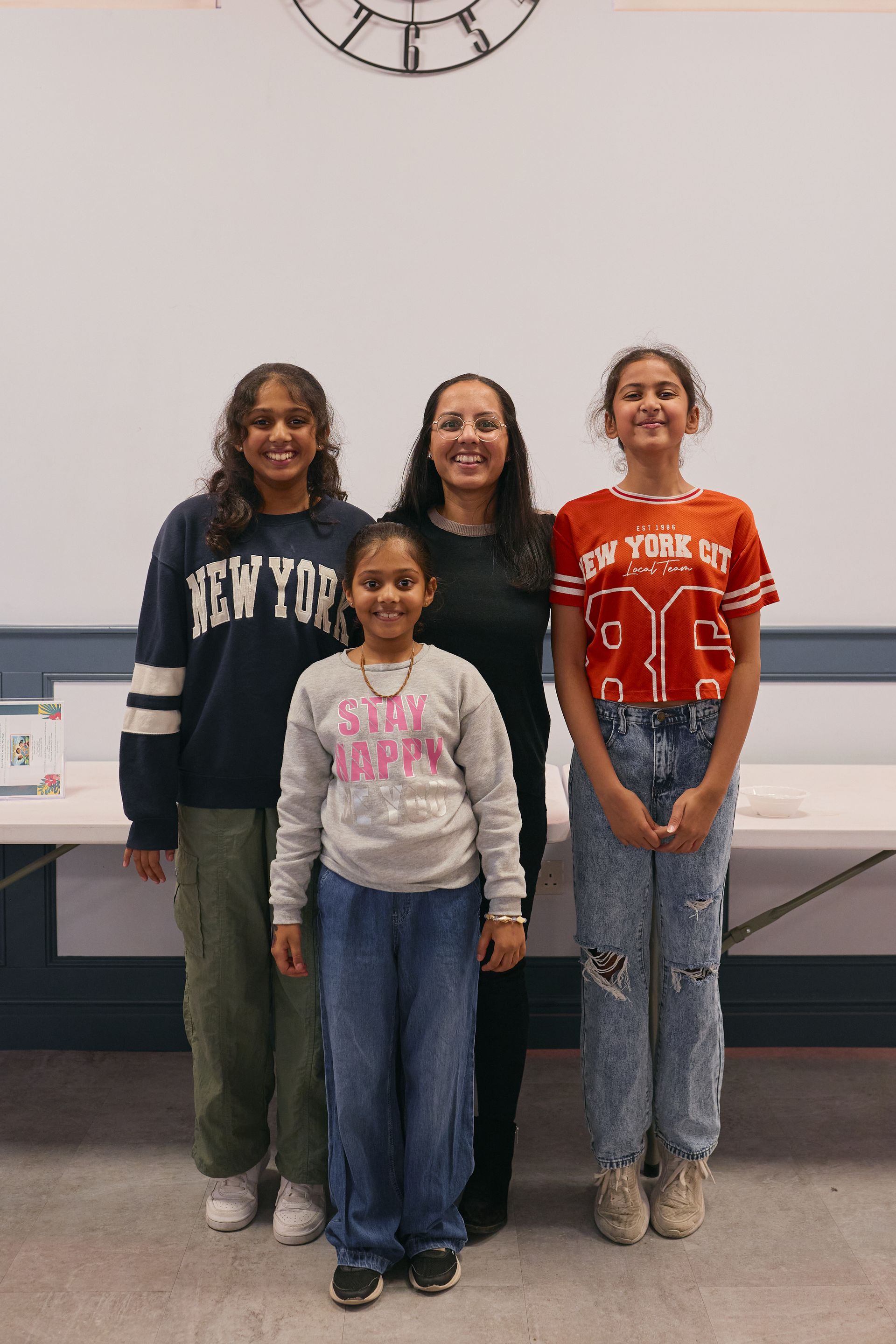
Every child learns piano for different reasons and their goals can (and should!) reflect who they are. Some children love structure. Some crave creativity. Some enjoy performing, while others prefer playing quietly for themselves. Understanding the different pathways available helps parents support their child more confidently and avoid unnecessary pressure. 1. Every Child’s Musical Journey Is Unique There isn’t a single “correct” goal for piano. Children can learn for: ● Fun ● Confidence ● Academic benefit ● Creativity ● Examinations ● Performance opportunities ● Emotional well-being Sometimes one goal leads into another and that’s part of the magic! 2. The Most Common Piano Goals (and How They Help) Creative Development Improvisation, composing, arranging popular songs Benefits: imagination, confidence, emotional expression Skill Building Technique, fluency, accuracy Benefits: discipline, brain development Performance Confidence School concerts, family recitals Benefits: public speaking confidence, resilience Exam Pathway (Optional) Grading Benefits: structured progression, sense of achievement Well-being and Relaxation Playing for joy and calm Benefits: mental balance, stress relief Actionable Tip One Ask your child: “What do you enjoy most about the piano?” Their answer often reveals what their goals naturally should be. If you’d like help identifying what motivates your child, feel free to message us - we can offer insight based on how they learn in lessons. 3. Choosing the Right Goal for Your Child’s Age and Personality Here are some ideas but please note these are not fixed as it does depend on the personality, strengths and goals of your child. Ages 5–7: Short wins, fun pieces, confidence-building Ages 8–11: Structure, pieces they recognise, balanced challenge Ages 11–14: Identity, creative choice, performance opportunities Teens: Style exploration, exam strategy, personal expression Actionable Tip Two Create a simple “one-term goal” together: Examples: ● “Learn two pieces I love” ● “Perform at the next school concert” ● “Take my Grade 1 when I feel ready” ● “Compose a short melody” One achievable goal can dramatically boost motivation. 4. Goals Can Change (And That’s Healthy!) Children go through phases - more academic pressure, emotional changes, shifting interests. Their piano goals should evolve with them. This is why regular communication with your teacher is so important. If you’re unsure what goals suit your child best - or you’d like help setting motivating, realistic targets - you’re welcome to message us anytime. We love helping parents understand what’s right for their child.
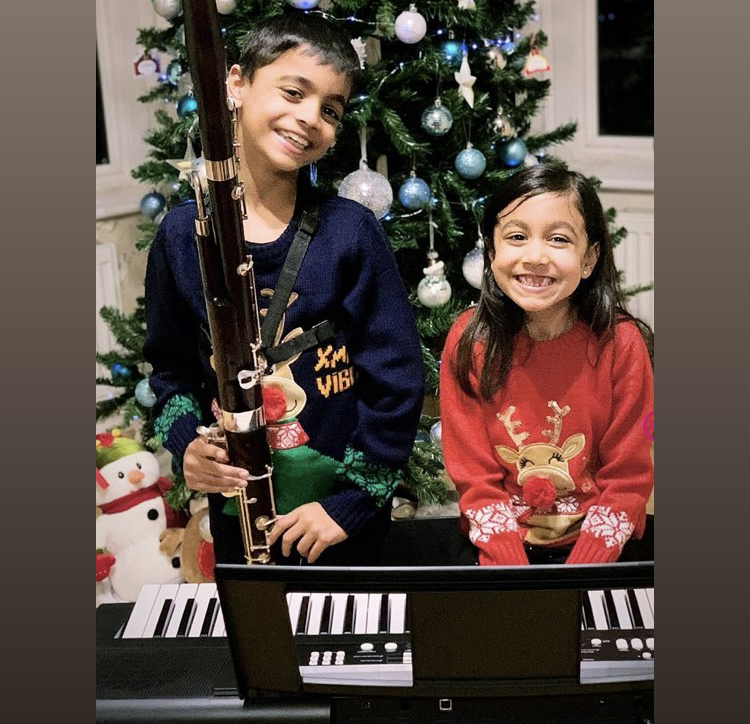
Christmas is a time for family, fun, and a much-needed pause from rigid routines. If your child learns the piano, you might be wondering how to keep music ticking along without it feeling like yet another thing to manage during an already busy season. The good news? Piano progress doesn’t stop just because formal practice looks different. Small, intentional musical moments can go a long way especially for children aged 6–8. Here are three simple, low-pressure ways to support your child’s piano learning over Christmas. 1. Reframe “Practice” as “Play” One small word change can make a big difference. Instead of saying “Go and practise the piano”, try: “Can you play me something on the piano?” “What would you like to play today?” “Can you show me your favourite part?” Why this helps: Children associate play with freedom and enjoyment It removes the pressure of “doing it right” It encourages curiosity rather than resistance Ask your child to play one thing only - even if it’s just 30 seconds. A tiny win keeps confidence high and avoids overwhelm. 2. Use Everyday Listening to Spark Musical Interest You don’t need to be musical to support your child’s ear for music. Listening to piano-based music in the car, while cooking, or during downtime helps children absorb rhythm, mood, and musical patterns naturally. Try: Film soundtracks with piano Calm pop songs featuring piano Instrumental background music during quiet time How to make this interactive (without a lesson): “Does this sound happy or calm?” “Is the piano playing loudly or softly here?” “Would this be fast or slow to play?” These simple questions build musical awareness without sitting at the piano at all. 3. Turn Music Theory Into a Game Theory doesn’t need to feel formal - especially at Christmas. Short, playful theory moments can actually strengthen understanding and help your child feel more confident when they return to lessons. Easy ideas: Flashcards at the breakfast table A 2-minute quiz before bed “How fast can you name these notes?” challenges Keep it light: No correcting every mistake Celebrate effort over accuracy Stop while it’s still fun Set a timer for 2–5 minutes only. Ending early keeps children keen rather than tired. A Final Thought for Parents If the piano looks different over Christmas, that’s completely okay. What matters most is that: Your child feels positive about music The piano remains a friendly, familiar space Learning continues in small, manageable ways These gentle approaches help children return to lessons feeling confident not behind. If you ever want ideas tailored to your child’s age or level, we’re always happy to help support. Please feel free to reach out if you have any questions!

Choosing the right piano teacher can shape your child’s enjoyment, confidence and long-term progress. A great teacher doesn’t just teach notes; they inspire, guide, encourage, and adapt to your child’s needs. Here’s what parents should look for when choosing a piano teacher. 1. A Teacher Who Understands Children, Not Just Music A brilliant performer doesn’t always make a brilliant teacher. Your child needs someone who understands learning styles, motivation and confidence levels, age-appropriate expectations, and emotional development. Good teaching feels like support, encouragement, and clear direction rather than pressure. Actionable Tip One After each lesson, ask your child one simple question: “What did you enjoy most today?” Their answer will tell you a lot about whether the teacher understands how to make learning feel positive and age-appropriate. If answers become consistently negative or vague, feel free to reach out to us for guidance. 2. A Teacher Who Communicates Clearly With Parents Parents should never feel in the dark about their child’s learning. A great teacher explains what your child is working on, why certain pieces are chosen, how practice can be supported at home, and how progress is developing over time. A teacher who welcomes questions helps make the whole journey smoother. Actionable Tip Two Set aside one minute after lessons to quickly note what the teacher mentioned or demonstrated. Even a short note, such as “Focus on left hand this week”, helps you stay connected and gives your child consistent support at home. If you’re unsure about anything, you can always ask us for clarification. 3. A Structured, Thoughtful Approach to Progress Children thrive when their learning is organised and tailored. A high-quality teacher provides a clear pathway of progression, goals matched to your child’s age and personality, a healthy mix of repertoire that includes classical, pop or film music, and a balance between fun and skill-building. Exams are offered as an option when appropriate, not a pressure. Actionable Tip Three Try a termly mini check-in with your child’s teacher. Ask three simple questions: 1. “What skill is my child currently developing?” 2. “What’s going well?” 3. “What can we support at home?” This keeps learning aligned, clear and motivating. Great teachers welcome these conversations, and we are always happy to talk with you. 4. A Teacher Who Understands Local Expectations Parents in Stanmore, Edgware, Canons Park and Hatch End often prepare children for the 11+, value discipline and routine, seek activities that build confidence, and prefer structured learning. A teacher who understands your local culture and expectations can support your child more effectively and tailor lessons with these needs in mind. Actionable Tip Four Share your family’s educational goals with the teacher at the start of the year. Whether you want improved confidence, support during 11+ preparation, or a balanced creative outlet, this helps the teacher shape lessons that truly complement your child’s wider development. If you’re unsure what goals would suit your child, feel free to ask us. If you want to understand what high-quality piano teaching looks like or whether your child’s current lessons are meeting their needs, feel free to contact us. We are here to help guide you toward the best experience for your child.

It’s a familiar situation for many parents: your child loves their piano lessons. They come out smiling, talk excitedly about new songs, and sometimes even play little tunes at home just for fun. But when it comes to actual practice time…things suddenly feel a lot harder. Maybe they avoid it. Maybe they forget. Maybe they do a few minutes and wander off. And you start wondering: “Do they really enjoy this?” “Are we wasting time or money?” “Shouldn’t they be practising more if they like it?” Take a deep breath - this phase is incredibly common. Children can genuinely enjoy learning piano and still struggle to practise regularly. They’re often not being lazy. They’re simply figuring out how to build a new habit in the midst of a busy, ever-changing routine. Here’s how you can gently support them through this stage while keeping piano enjoyable and meaningful. 1. Notice the Signs of Enjoyment That Happen Outside Practice Time Children don’t always show enthusiasm in predictable ways. Even if formal practice is inconsistent, you’ll often see subtle signs that they’re still engaged: They hum or sing their piano pieces They sit at the piano and explore sounds They talk positively about lessons They remember melodies long after learning them They show excitement about a favourite song These small behaviours mean that music is sticking - even if the practice routine isn’t perfect..yet! 2. Remember That Building a Routine Takes Time Adults know how hard forming habits can be - and for children balancing schoolwork, homework, activities, and social events, it’s even tougher. Some weeks they’re on track. Other weeks they’re overwhelmed or tired. And sometimes they’re simply distracted by being…well, kids. This inconsistency doesn’t mean piano isn’t important to them. It means they’re learning how to integrate it into their life, one step at a time. 3. Keep Practice Short and Doable You don’t need long practice sessions to see progress. In fact, shorter sessions often work better for children with full schedules. Aim for: 10 minutes of focused practice One section of a song they are struggling on A flashcard set Practising 4 times per week rather than 7 - to start off with! This approach feels achievable for your child and reduces the stress of “fitting it in.” 4. Offer Light Homework on Busy Weeks If your child is buried under schoolwork or just having an off week, switching to “gentle homework” keeps them connected without pressure. Try: Listening to their piece Practising just the first few bars Reviewing note flashcards for 4-5 minutes These tiny touches still reinforce learning. 5. Encourage Them to Send a Quick Video When They’re Stuck If your child hits a tricky spot, it’s tempting to Google solutions — but online methods often contradict what they’re learning, which creates confusion. A much better approach: Record a short clip of the problem area Send it to the teacher Let the teacher provide the right explanation or resource This gives your child reassurance, keeps them progressing correctly, and removes the frustration that leads to practice avoidance. 6. Keep Piano a Positive Space at Home Children thrive when they feel supported, not judged or pressured. You can help by: Showing interest in what they’re learning Keeping comments relaxed and encouraging Letting them explore the piano freely after practice - this will keep them at the piano for longer! A warm atmosphere builds confidence and long-term enjoyment. 7. Create a Routine That Fits Naturally Into Family Life Consistency doesn’t have to mean rigidity. The best routines feel calm, predictable, and simple. Some easy ideas: Practise right after a snack Use a gentle 10-minute timer Keep the piano area tidy and inviting Display books where they’re easy to grab Tie practice to an existing habit (“after homework,” “before dinner,” etc.) Routines work best when they feel natural rather than forced. If your child enjoys the piano but struggles to practise regularly, it doesn’t mean something is wrong. It simply means they’re learning to balance music with the rest of their busy life. With your encouragement, flexible expectations, and gentle guidance, they will continue to make meaningful progress - even if the practice routine isn’t perfect yet. What matters most is that they feel supported, confident, and excited to keep going. If you have any questions please feel free to reach out!
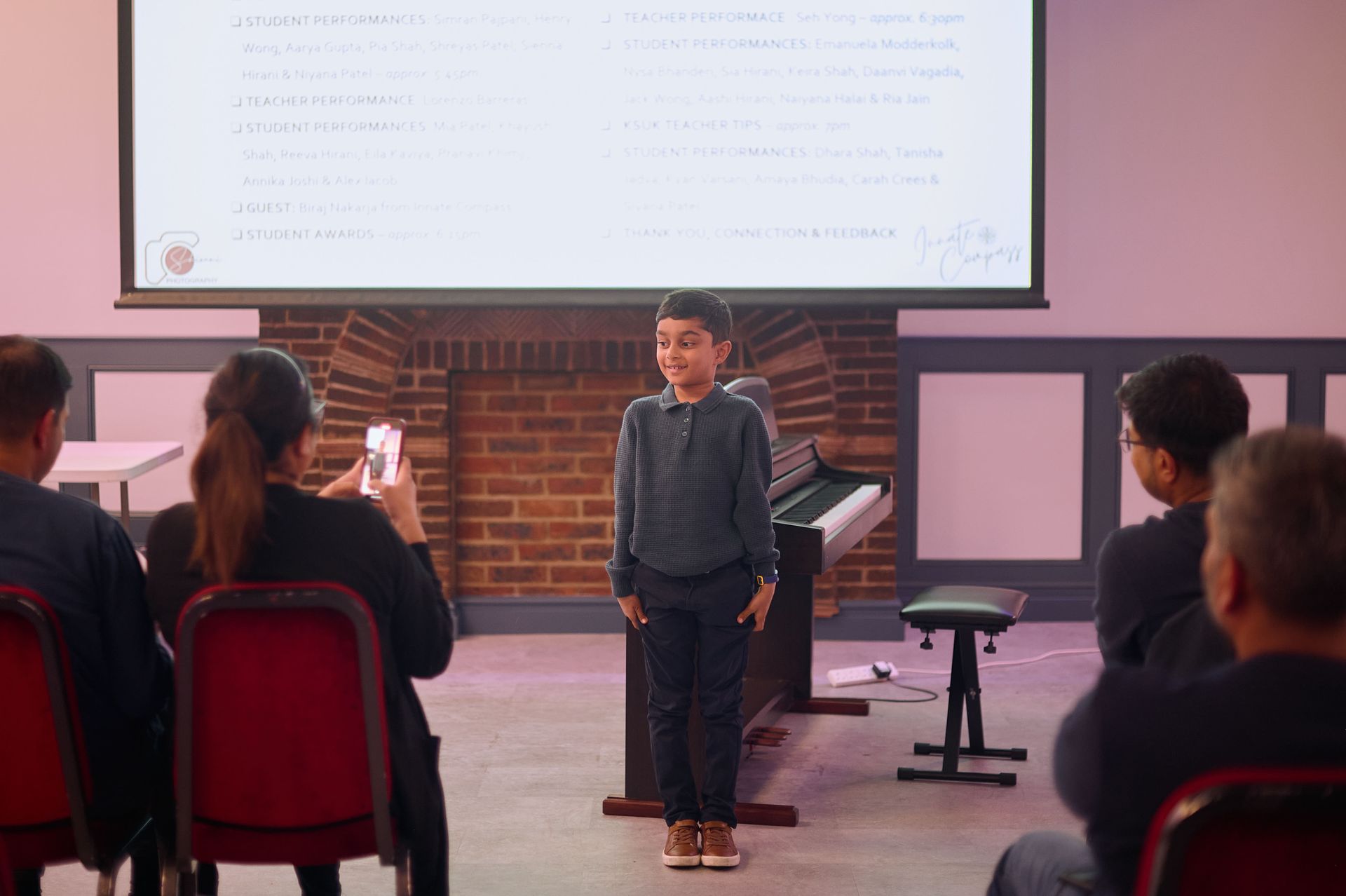
Piano is one of the most powerful tools for building skills that transfer directly into school performance, concentration, problem-solving, and confidence. Here’s how piano lessons genuinely support academic success. Piano strengthens focus, memory and brain development. Learning the piano engages multiple parts of the brain at once - listening, reading, motor skills, creativity, and problem-solving. This strengthens “executive function,” which directly impacts a child’s ability to learn. Academic connections: ● Stronger working memory → better maths and mental recall ● Better hand–eye coordination → smoother writing and reading ● Improved concentration → longer attention span in school Tip One Try a “focus warm-up” before homework: Ask your child to play one short piece or one scale before they start schoolwork. This activates the brain and primes them to concentrate. If you’d like suggestions for simple musical warm-ups that help with focus, just ask us - we’re happy to share ideas. Remember Piano builds discipline, resilience and improved problem solving skills. Regular practice teaches children how to stick with something even when it feels challenging - an essential skill for academic growth. Over time, they learn how to: ● Break tasks into steps ● Work through frustration ● Set goals and achieve them ● Take responsibility for their own progress These are the same habits that support 11+ preparation, secondary school transition, and exam confidence. Tip Two Use the “5-minute start” method: If practice ever feels overwhelming, set a timer for just 5 minutes. Most children continue naturally once they’ve begun - it reduces resistance and mirrors effective study strategies used in school. Piano encourages emotional intelligence. Children who play music learn how to express themselves, manage emotions, and think creatively - traits increasingly valued by top schools. Piano helps children develop: ● Confidence in performance situations ● Emotional awareness ● Creative thinking and improvisation ● A sense of identity and personal achievement Piano is a helpful addition in school applications (where appropriate). While no school admits a child because they play piano, many schools value well-rounded students who show commitment, skill development, and personal interests. Music often strengthens school interviews because children can talk confidently about: ● A hobby they’ve committed to ● Performances they’ve done ● Challenges they’ve overcome If you’re unsure how piano is supporting your child’s academic growth or want advice on practice habits, confidence-building, or balancing piano with school please reach out at any time. We’re here to help your child thrive and support where we can!
